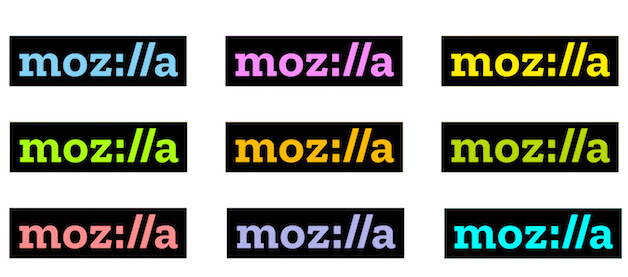
Mozilla promises to delete private data collected by Firefox fix and apologizes for add-on outage
A slip-up by Mozilla stopped Firefox add-ons from working last weekend, and the company issued a fix followed by an update to the browser to get things back to normal. Mozilla has now issued an apology, a detailed explanation about what happened, and made a promise to delete the private data collected by those who used the first fix.
The initial fix that was issued via Firefox's Studies system required users to enable telemetry. Many people have such data-collection options disabled for privacy reasons, and Mozilla says that it will delete any data that it collected for its entire user base.

Mozilla issues new Firefox update to fix add-ons problems and warns users not to try dubious workarounds
Mozilla has pushed out Firefox 66.0.4, properly addressing a problem that prevented add-ons from working in the web browser.
On Friday, an expired security certificate caused frustration and confusion for Firefox users as extensions were disabled and rendered unusable. Having delivered a patch through its Studies system (which did not work for everyone), Mozilla has now issued a browser update which it says will fix the problem for more people, although it warns that "there are remaining issues that we are actively working to resolve".

Mozilla explains why Firefox add-ons stopped working... and how to fix the problem
Since late last night, Firefox users have been plagued with a problem that meant no add-ons were working. Extensions were disabled and users were unable to re-enable them, causing confusion and frustrationaround the world.
It turns out that that the reason Firefox add-ons stopped working is that a signing certificate expired. Having determined the cause of the problem, Mozilla has developed a fix for users of the desktop version of Firefox on the Release, Beta and Nightly channels. [UPDATE: Mozilla has released a new version of Firefox that fixes most problems for more users.]

Mozilla bans Firefox add-ons with obfuscated code
As Mozilla continues to try to make it safer than ever to use Firefox, the organization has updated its Add-on Policy so that any updates that include obfuscated code are explicitly banned.
Mozilla has also set out in plain terms its blocking process for add-ons and extensions. While there is nothing surprising here, the clarification should mean that there are fewer causes for disputes when an add-on is blocklisted.

Beta and nightly builds of Firefox now protect against fingerprinting and cryptomining
Mozilla has added new protective features to the nightly and beta versions of Firefox. Through a partnership with Disconnect, the browser is now able to block cryptocurrency mining and fingerprinting scripts.
The new features mean that users are protected against scripts that can be used to track them online, as well as those that use CPU cycles to mine for cryptocurrency. Mozilla says it is part of its mission to protect people from "threats and annoyances on the web".

Mozilla is launching curated Recommended Extensions program this summer
However much you love your chosen web browser, you have probably enhanced its capabilities through the use of add-ons. Finding decent, reliable add-ons can be tricky, and this is why Mozilla is launching the Recommended Extensions program.
This editor-curated program will surface the very best vetted extensions for Firefox, and it is due to roll out in stages later this summer.

Firefox Quantum 66 blocks audio autoplay, improves scrolling behavior and adds option to search all tabs
Mozilla has rolled out Firefox 66.0 for Windows, macOS and Linux, along with Firefox for Android 66.0.
The new release is light on new features, but heavy on delivering significant improvements across the browser. The big new addition is that websites will now automatically be blocked from playing sound -- however, the customizable feature won’t be immediately available to all users

New Windows Defender Application Guard add-ons for Chrome and Firefox open untrusted sites in Microsoft Edge
If you attempt to visit a bad site in Firefox or Chrome, your browser will often warn you, so you can decide whether or not to take the risk and continue to your destination.
Microsoft has joined the fight to prevent users unwittingly visiting bad sites by creating new extensions for Google and Mozilla’s browsers which automatically redirect users from untrusted sites to Windows Defender Application Guard for Microsoft Edge.

Firefox Quantum 65 rolls out enhanced content blocking protection, macOS HandOff support
Mozilla has just released Firefox 65.0 for Windows, Mac and Linux, along with Firefox for Android 65.0. The major highlight of this new release are improved tracking protection controls, improved multilingual support and the ability for macOS users to transfer tabs to their iOS devices via HandOff. Android users should see that scrolling performance is improved.
Firefox 65 rolls out a redesigned set of controls for its Content Blocking feature. Users can access these via the 'i' icon on the Address Bar, or by visiting the Privacy & Security section of Firefox’s settings dialog.

Mozilla confirms Firefox Screenshots is here to stay, although one key feature will be lacking
It has been a busy time at Mozilla recently, with the relaunch of Mozilla Labs and the closure of the Firefox Test Program. The second piece of news -- coupled with the shelving of certain changes to Firefox -- led to speculation about the future of Firefox Screenshots, but Mozilla has come forward to try to calm these fears.
The company says that the screengrabbing tool -- which has become loved by many users since it launched nearly a year and half ago -- is here to stay. It's not all good news, however. One major feature is getting the axe: the ability to save screenshots to a Firefox-hosted server.

Mozilla closes experimental Firefox Test Pilot program
Just weeks after relaunching Mozilla Labs, the Firefox maker has announced that the browser's Test Pilot program is closing down. The move comes as Mozilla says it is "evolving Firefox's culture of experimentation".
The Test Pilot Program has been a beta testing ground for numerous Firefox features including Containers, Activity Stream and Firefox Monitor. But while this particular program is going away -- and with very little notice -- Mozilla says that experimentation will continue, and promises that experimental features will not be disabled for those who are currently using them.

Mozilla Labs is back!
The popularity of software betas and the Windows Insider program show that people are keen to get their hands on things earlier. There is a certain delight in tinkering with experimental tools, utilities and apps, and if this is the sort of thing that excites you, you'll be pleased to hear that Mozilla has brought Mozilla Labs back from the dead with a new site.
Not seen for a number of years, Mozilla Labs used to be home to experimental Firefox projects. Now, the relaunched version is home to more, including Project Things, Spoke, Hubs and more -- Firefox is no longer the sole focus.

Firefox Quantum 64 improves tab management, adds Task Manager page
With the news that Microsoft Edge will be ditching its own browser engine in favor of Google’s Chromium, those wishing to strike a blow against monopolization the net should be looking at Mozilla’s Firefox, which continues to develop its own independent Gecko engine. Firefox Quantum 64.0 has just been released for desktop, along with Firefox for Android 64.0.
Mozilla has made its own pitch for why the news about Edge could be bad for the wider net, but in the meantime Firefox 64.0 delivers a smattering of new features, and various other changes.

Firefox Monitor Notifications will issue a warning if you visit a breached site using Mozilla's web browser
If a website suffers a security breach you may well decide that you want to give it a wide berth. The problem is that it is impossible for individuals to keep track of all of the breaches that take place, and Mozilla wants to help out.
After teaming up with Have I Been Pwned recently, Mozilla created Firefox Monitor to help inform people about breaches, and this is now expanding to more languages. On top of this, the organization has also now launched Firefox Monitor Notifications that will issue a warning if you visit a site that has been breached.

Mozilla partners with ProtonVPN to offer security-conscious Firefox users a VPN
Mozilla has announced a partnership with ProtonVPN as it explores new ways to keep people safe online.
Starting today, a select group of Firefox users in the US will see an ad for ProtonVPN encouraging them to take out a monthly subscription with the service. It's an experiment that is part of Mozilla's attempt to explore new revenue streams to help keep Firefox funded.
